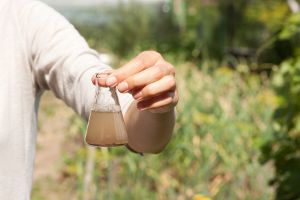
Water quality is a concern for both individuals and communities. That’s why understanding different testing methods is important whether you rely on groundwater or surface water as your primary water supply. Why is each important and what makes their testing processes unique?
Key Differences In Testing Groundwater vs. Surface Water
When comparing groundwater and surface water, one of the primary differences lies in their source and contaminant exposure. Testing methods also vary between the two.
Groundwater Testing
Groundwater is naturally shielded by layers of soil and rock, which act as barriers against contaminants. However, substances such as heavy metals, nitrates, and minerals can still impact its quality. To assess potential hazards, groundwater testing measures total metal concentrations and other risks.
Samples for testing are taken from wells, boreholes, and springs to analyze minerals, pH levels, and possible contaminant infiltration. Thanks to natural filtration, groundwater generally requires less frequent testing than surface water.
Surface Water Testing
Unlike groundwater, surface water is more exposed to the environment and human activities, making it more vulnerable to contamination from bacteria, pollutants, and sediment. This increased exposure highlights the importance of surface water testing and lake water sampling in preventing waterborne illnesses.
Surface water testing involves collecting samples from rivers, lakes, and other bodies of water to detect biological contaminants like E. coli, chemical pollutants, and turbidity. Due to its constant exposure to contaminants, surface water requires more frequent testing than groundwater.
Why Testing Is Important?
Ensuring drinking water safety is a primary concern when it comes to both groundwater and surface water. Each source is susceptible to different types of contamination, which can pose serious health risks if left unchecked. Compliance with water regulations is necessary to maintain safe water quality parameters for consumption and use.
Groundwater can contain total metal concentrations and other minerals, while surface water is at risk of biological contaminants, chemical pollutants, and river pollution. While surface water is typically the type of water that we consume, contaminants in groundwater can affect all nearby surface water sources due to the way the water cycle works.
Testing Procedures & Equipment
Testing procedures for groundwater and surface water differ due to the nature of each water source. Groundwater testing involves various environmental testing methods, such as well water assessment and hydrological testing. This testing ensures compliance with water regulations and provides valuable insight into the overall water quality comparison between different water sources.
Specialized equipment is used for deep water sampling to analyze total metal concentrations, nitrates, and other chemical components that groundwater may collect as it travels through different ground layers. Surface water testing includes surface water analysis, lake water sampling, and other techniques for collecting samples from rivers and lakes. The equipment used in surface water testing focuses on identifying biological and chemical contaminants.
- Groundwater testing involves well water assessment and hydrological testing.
- Specialized equipment is used for deep water sampling, focusing on total metal concentrations and nitrates.
- Surface water testing includes lake water sampling and surface water analysis.
- Equipment for surface water testing identifies biological and chemical contaminants, ensuring regulatory compliance.
Choosing The Right Testing For Your Needs
When determining the appropriate testing services, consider factors such as the type of water source (groundwater or surface water) and potential contaminants specific to your area.
Environmental consulting can provide valuable insights into your water source differences and the best testing methods to ensure safe water. Consulting with water testing professionals is crucial for tailored solutions, whether you need groundwater testing, surface water analysis, or comprehensive water contamination analysis.
Seek Expert Environmental Testing Services In Monterey, CA
Identifying and addressing water quality issues is imperative for a healthy community. At M3 Environmental LLC, we offer top-tier water testing services, dedicated to safeguarding groundwater and surface water in Monterey, CA.
Our expertise in environmental consulting ensures thorough evaluation, regulatory compliance, and tailored treatment solutions. Contact us today to ensure your water quality meets the highest standards.





